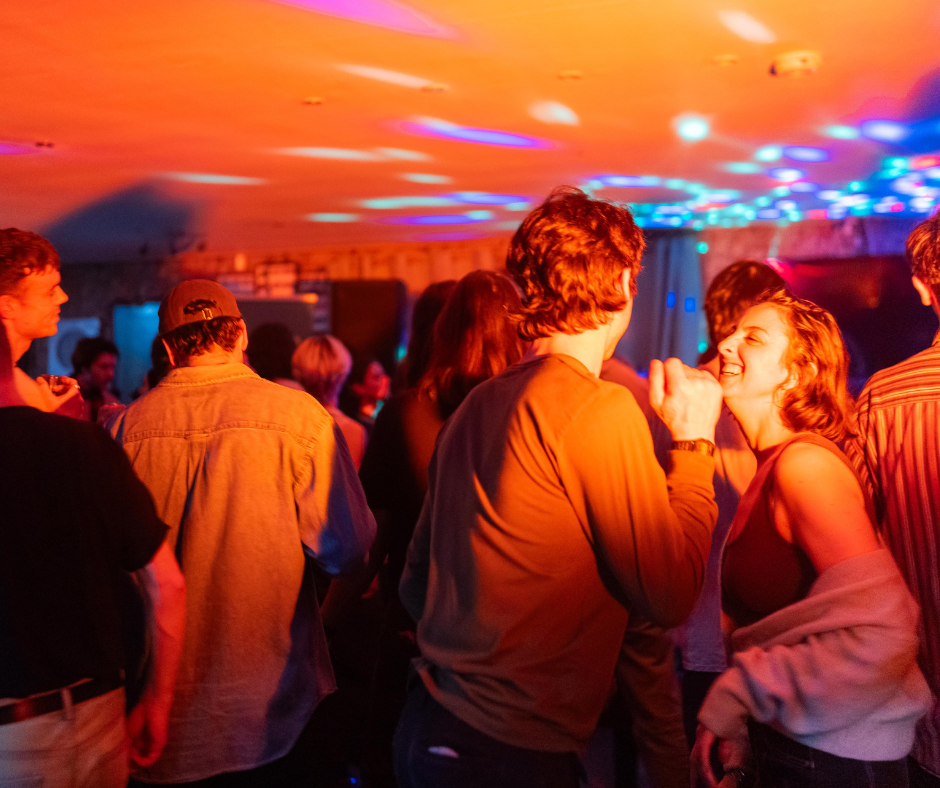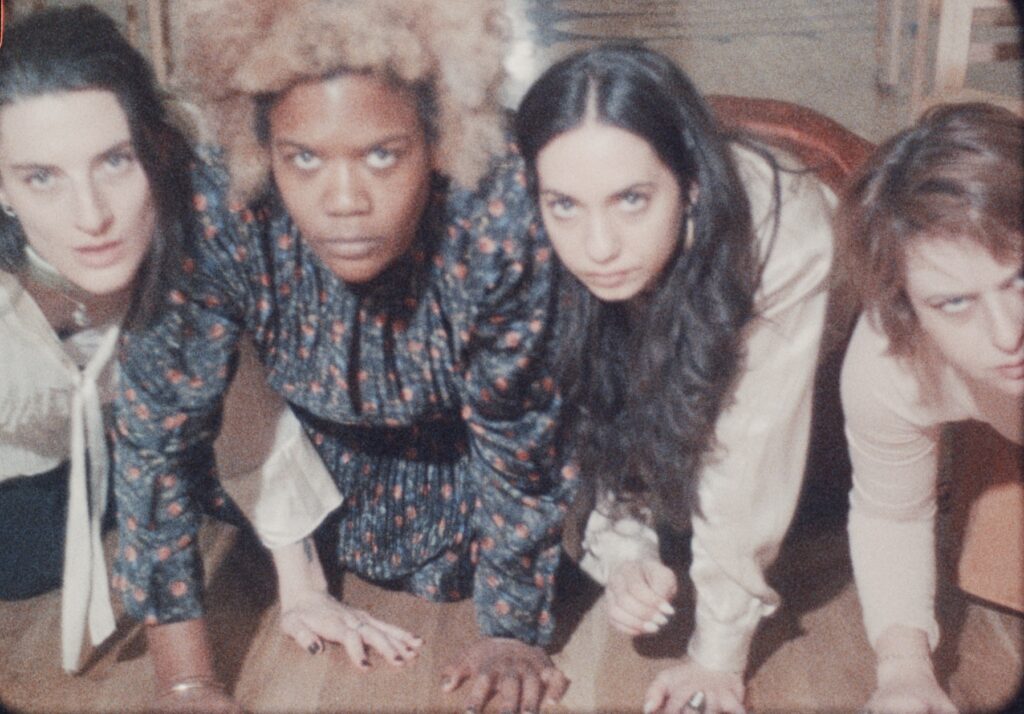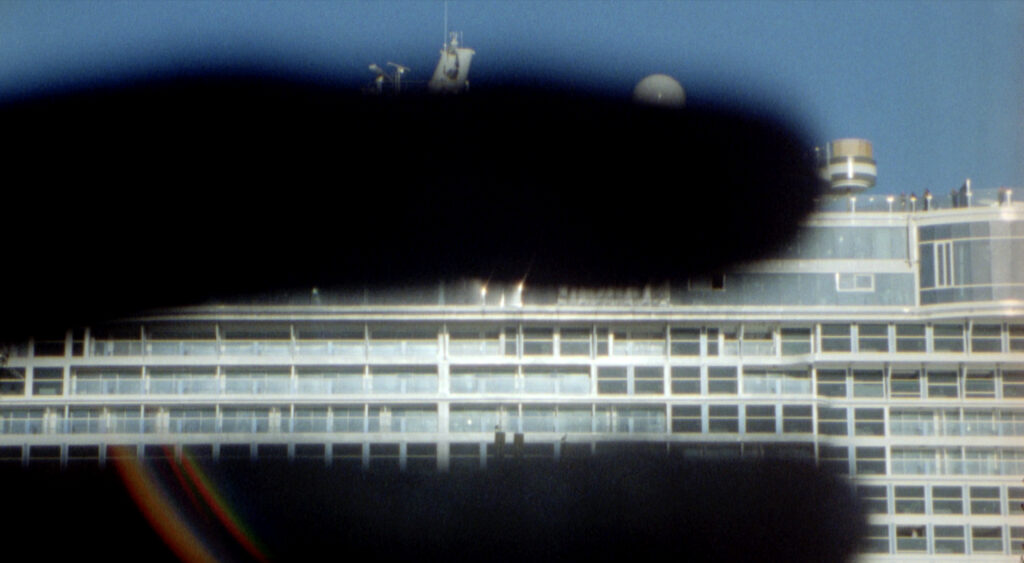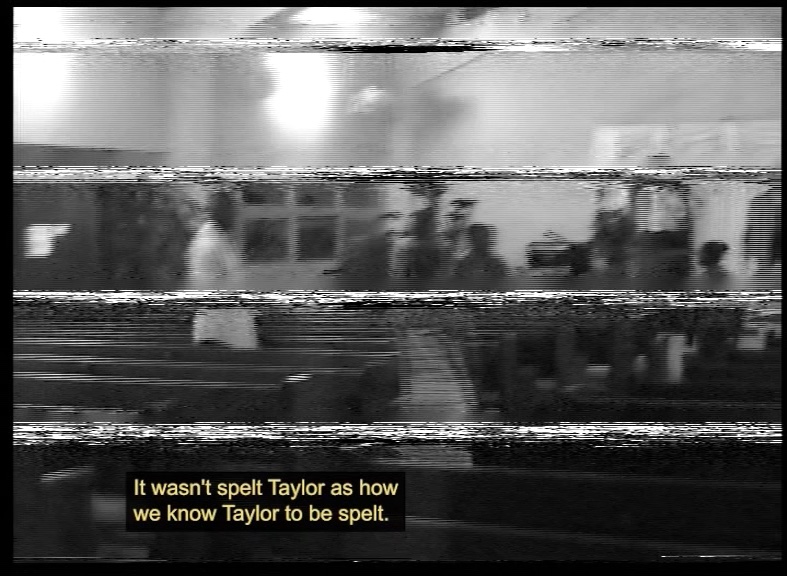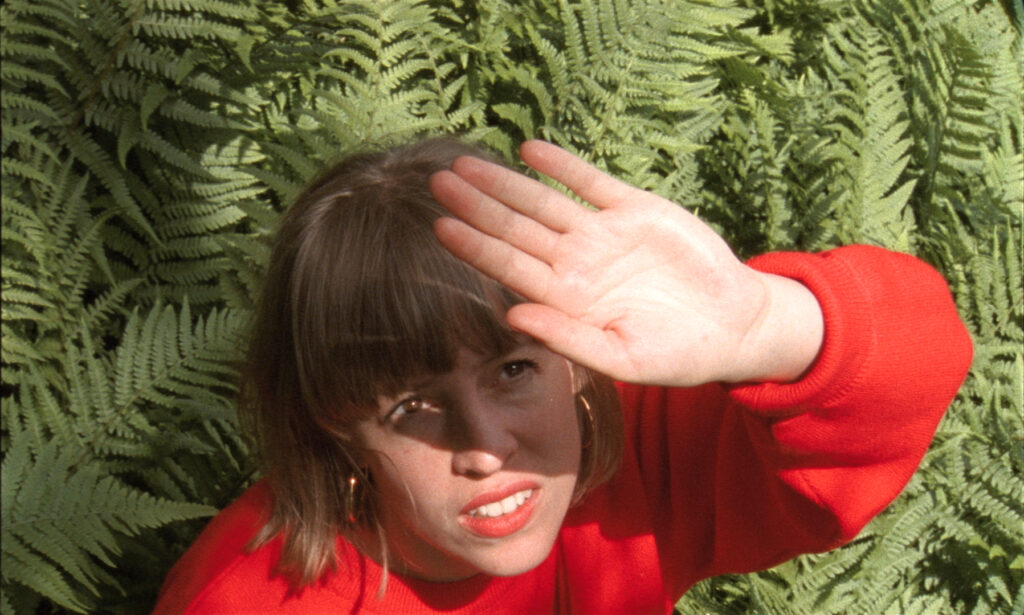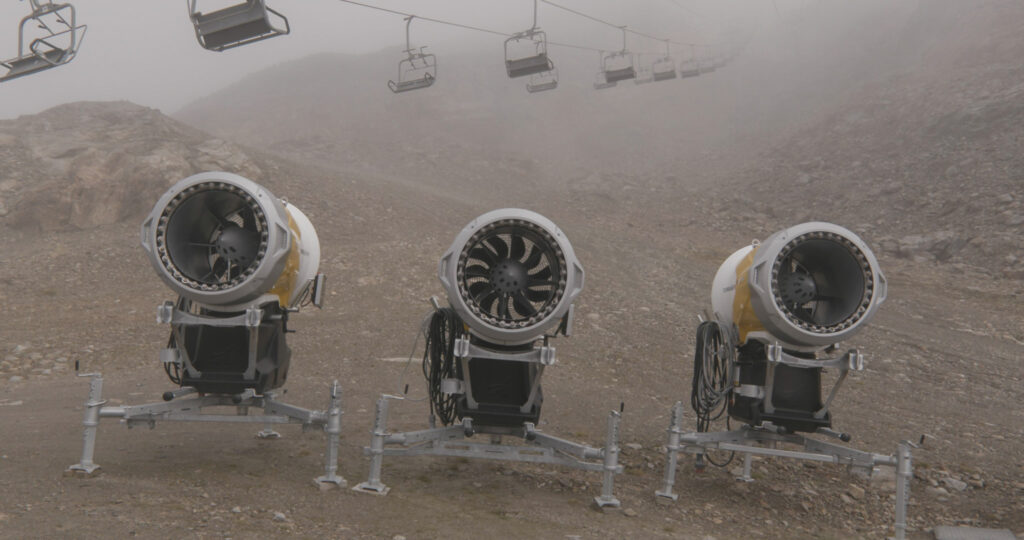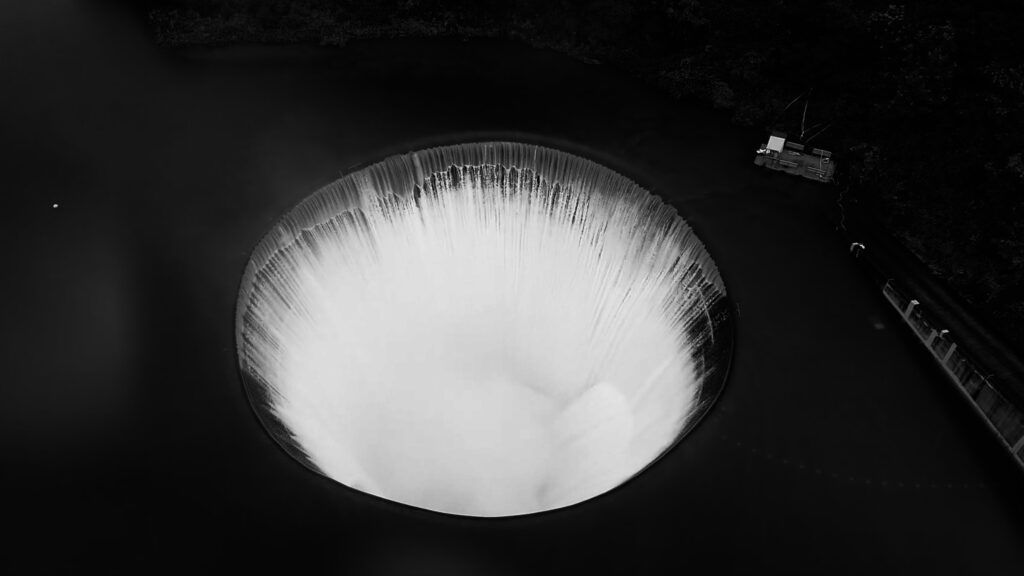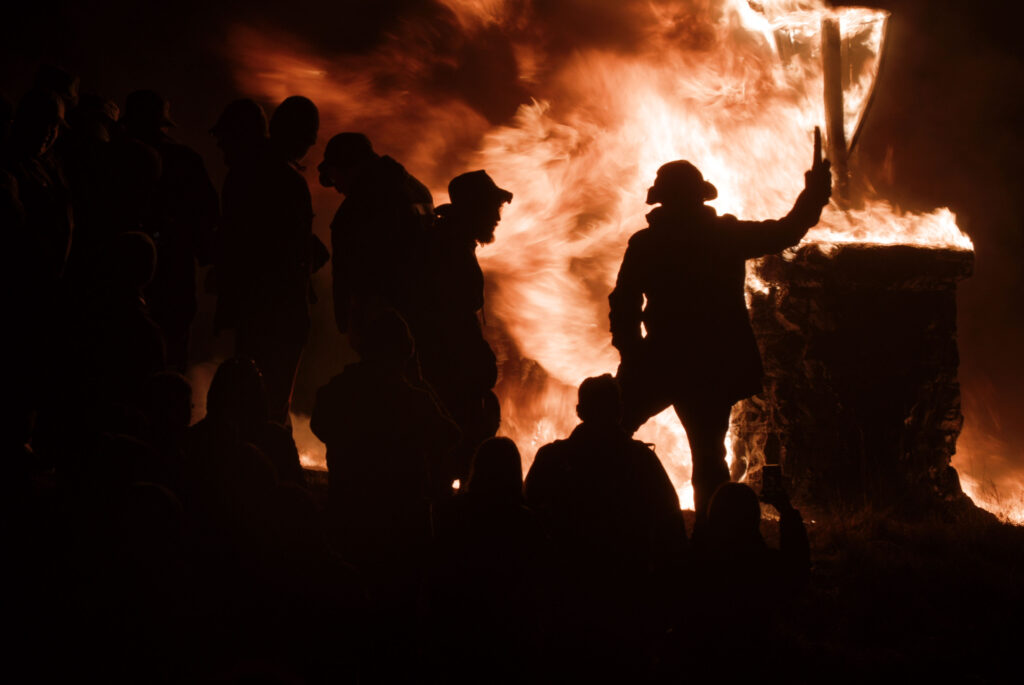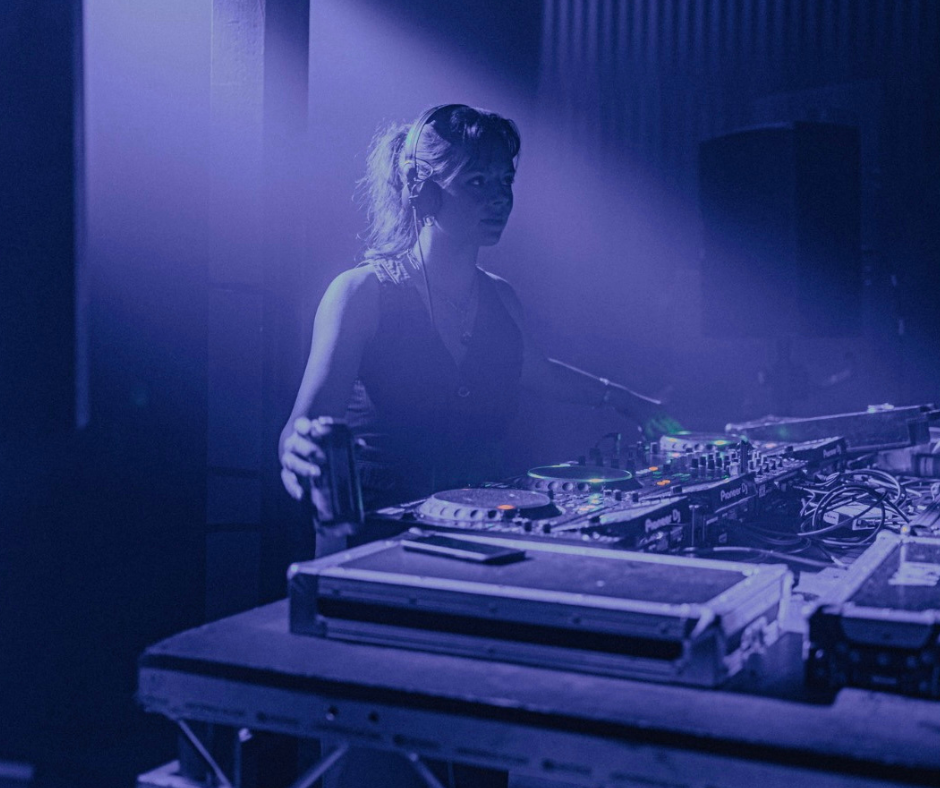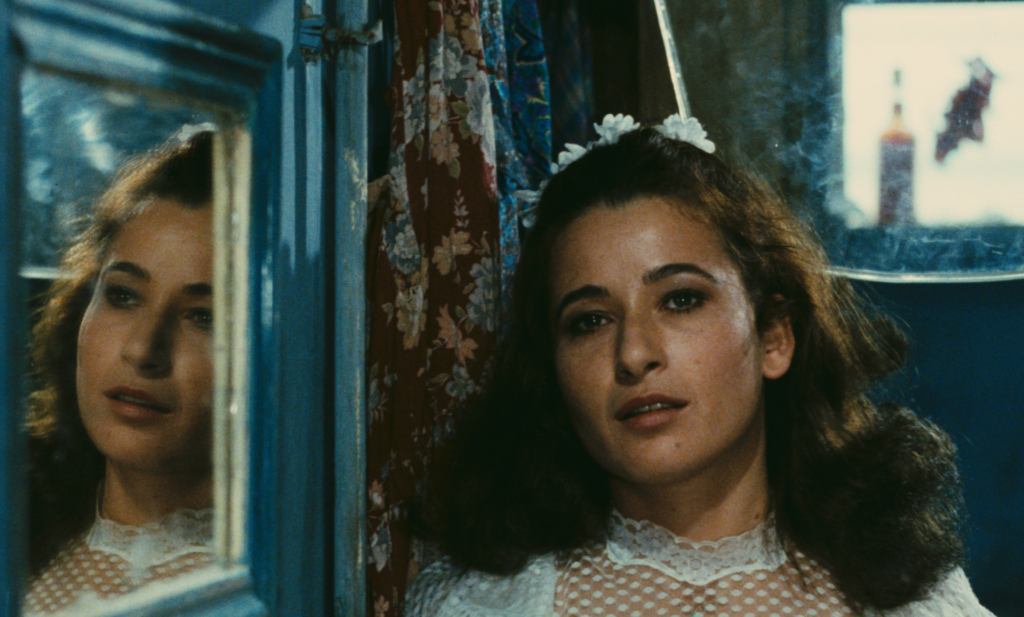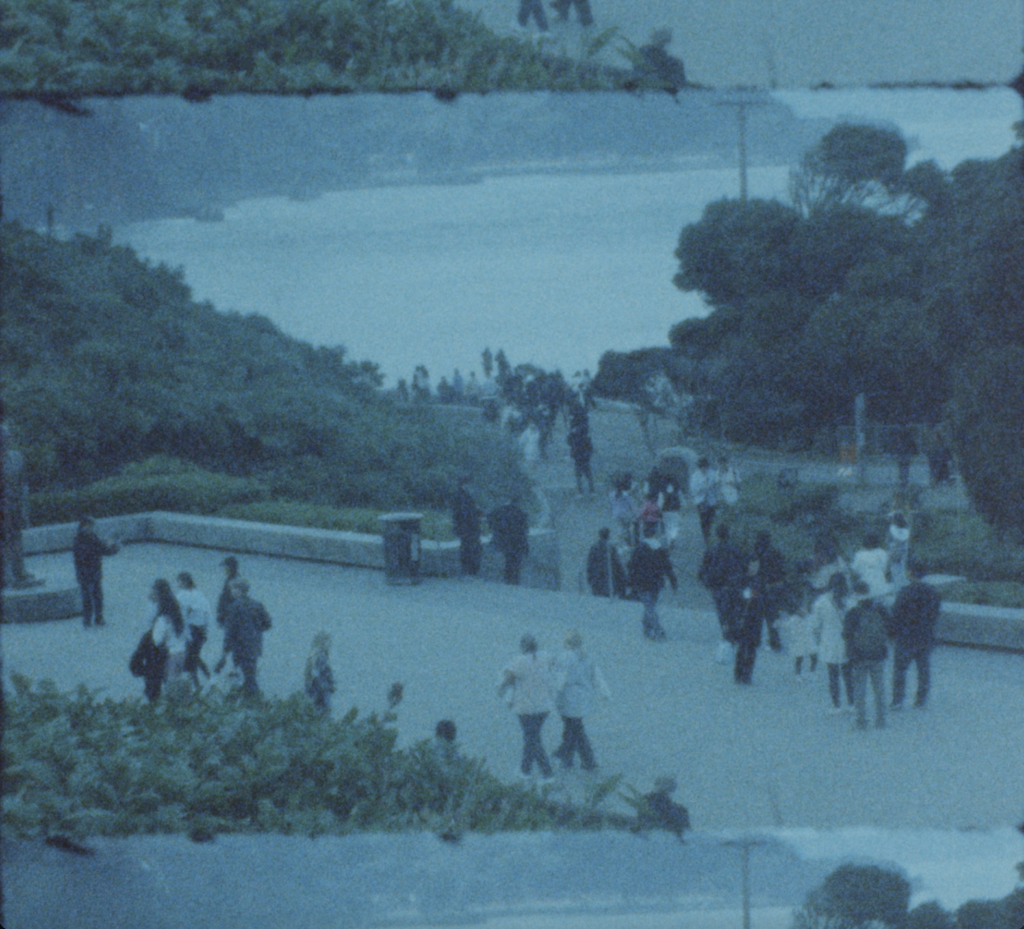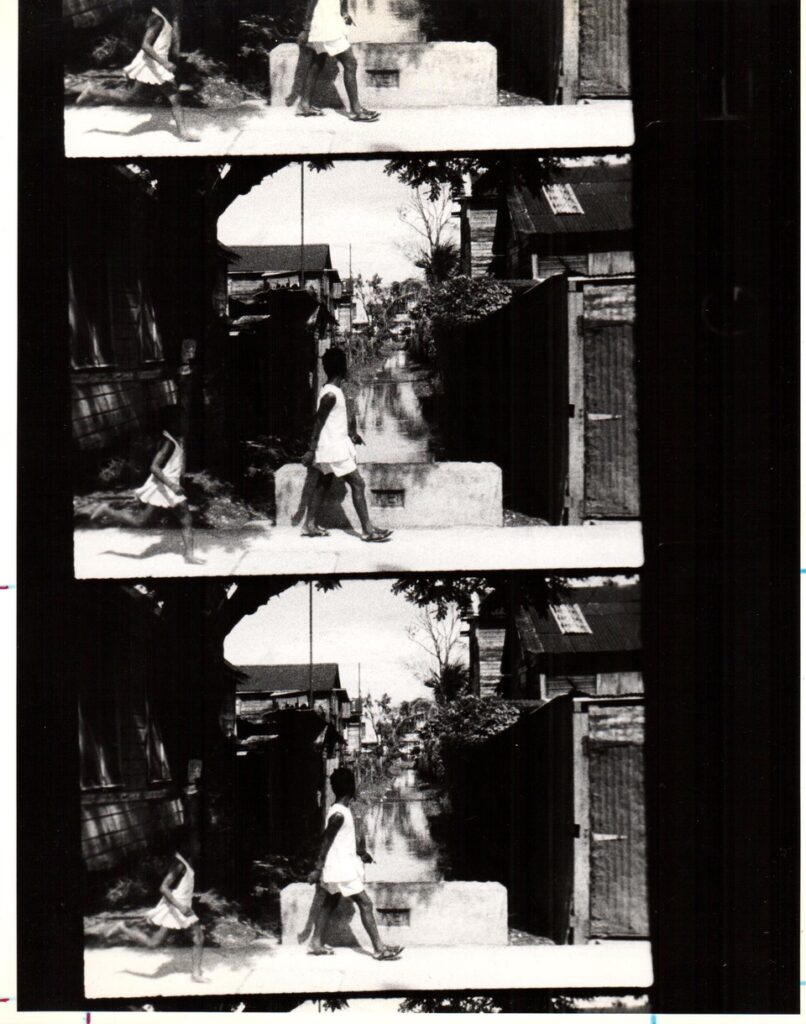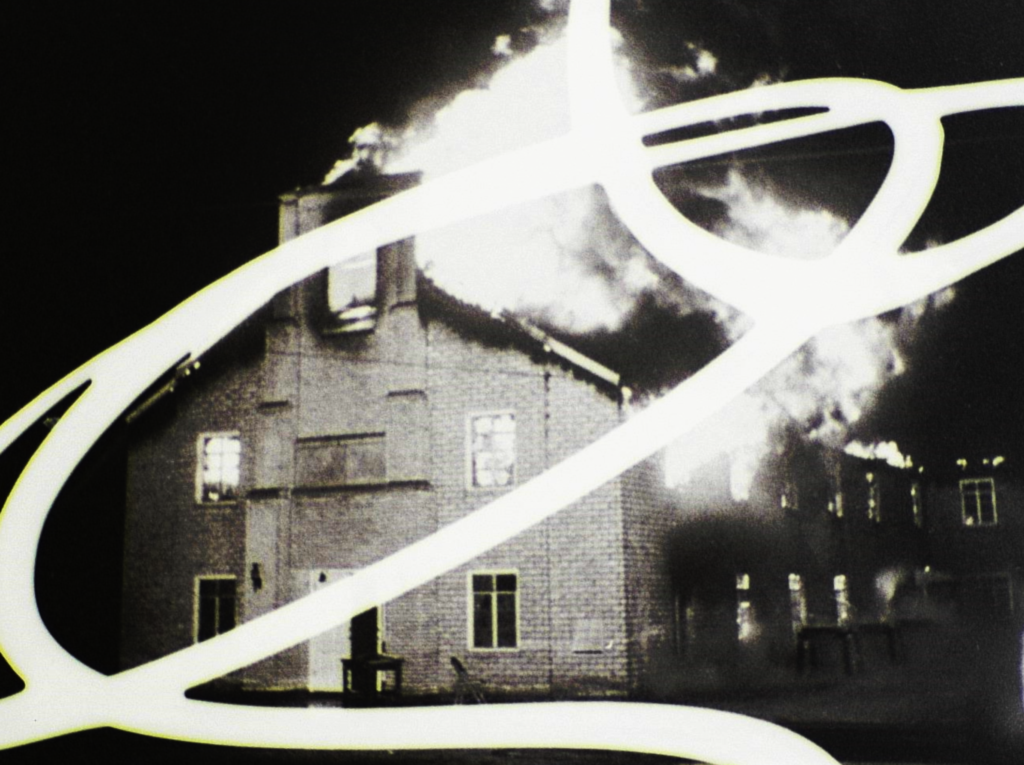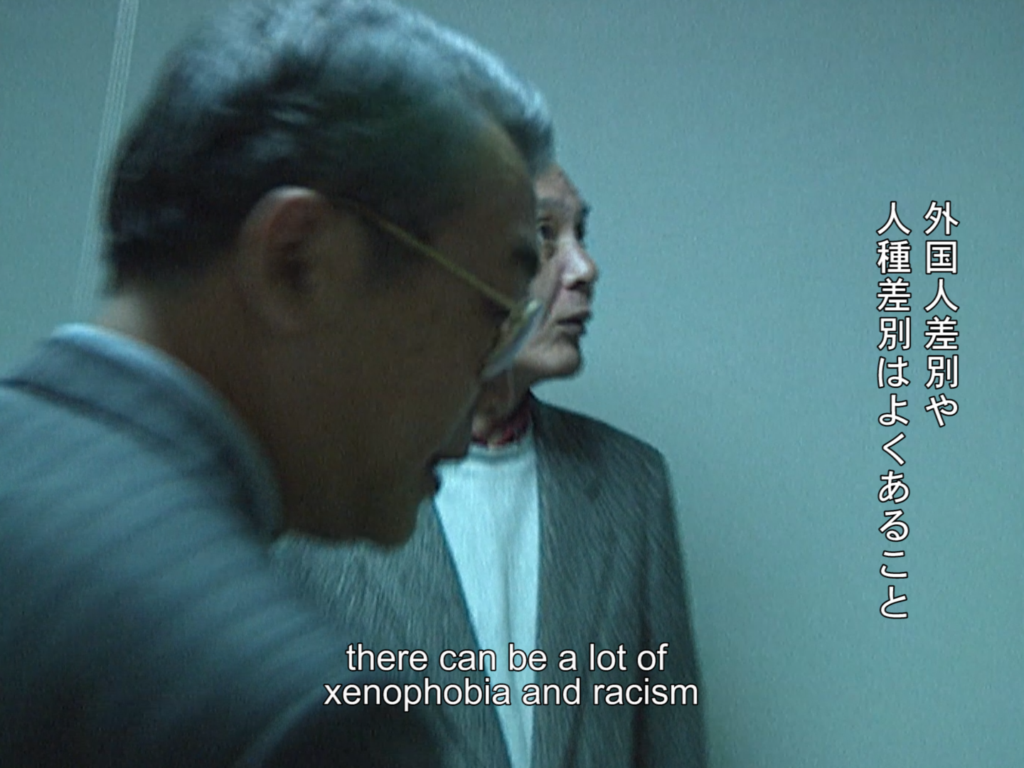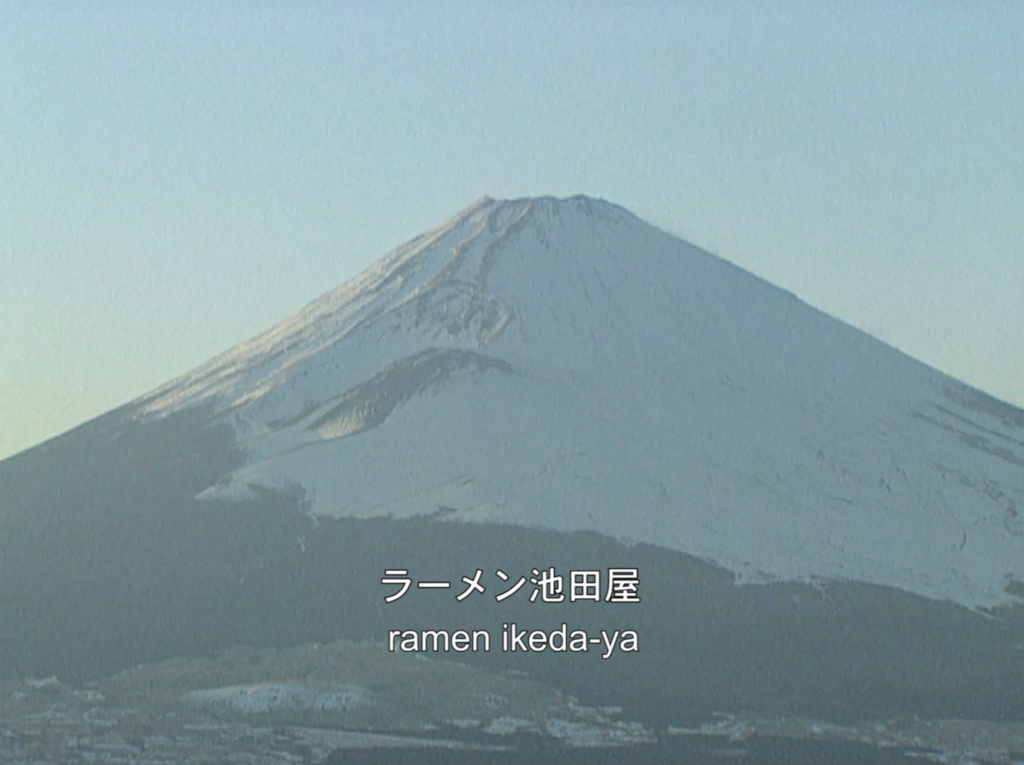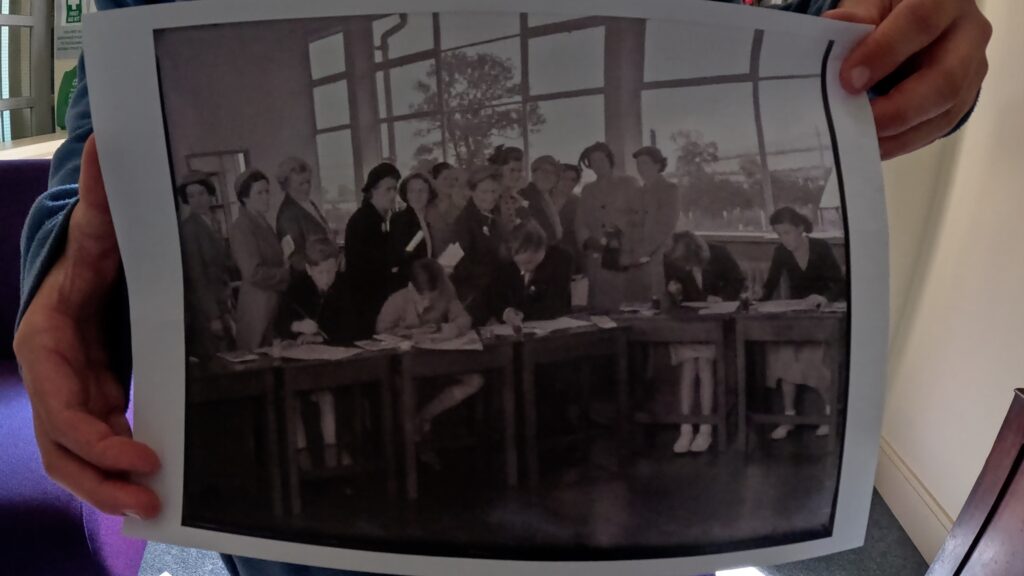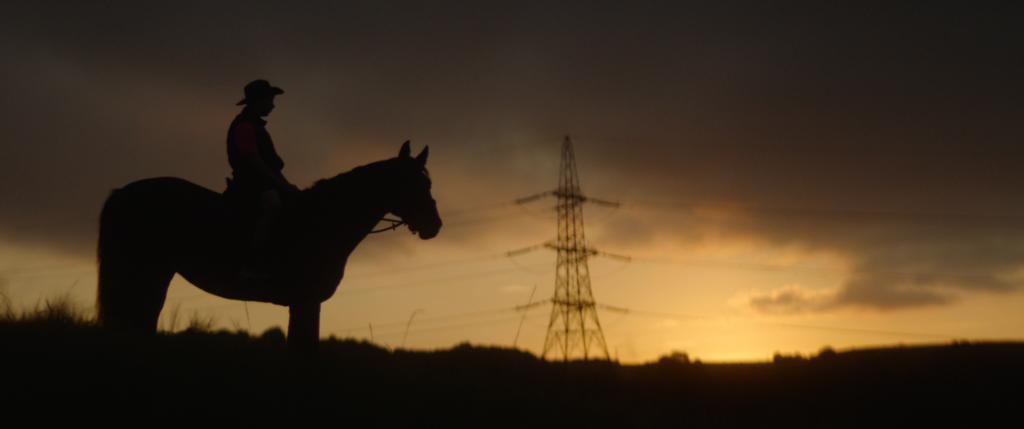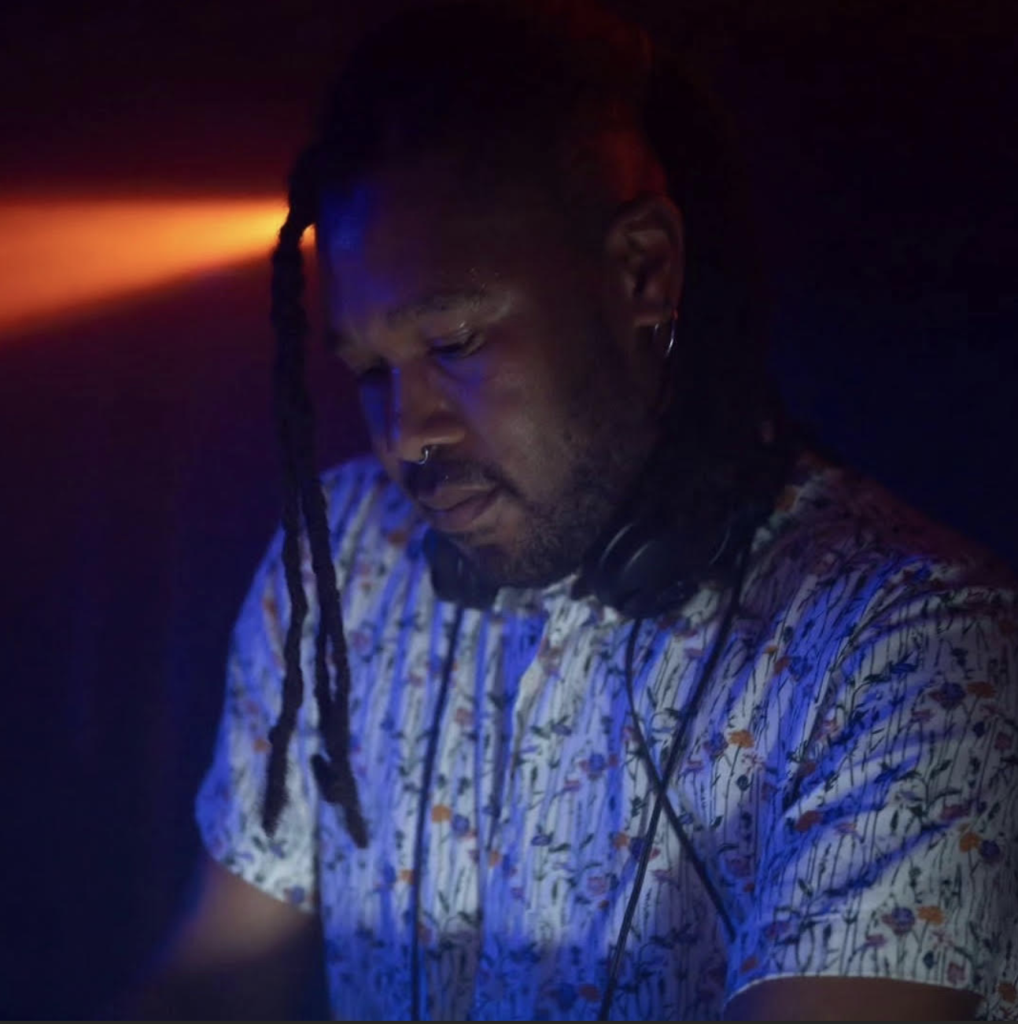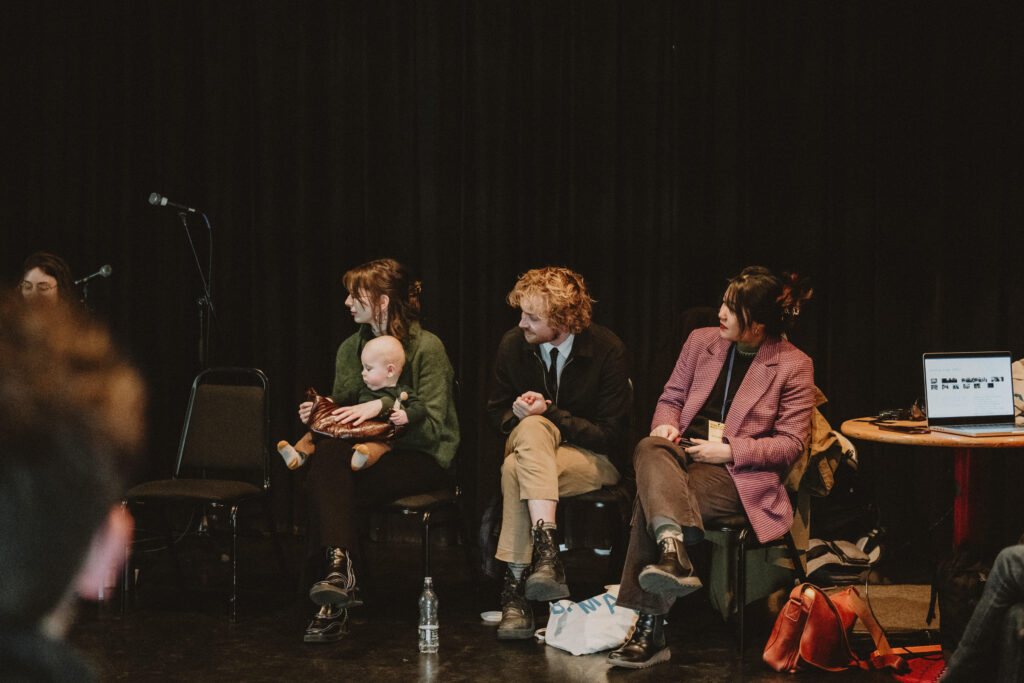A Love Tapes-themed night of dancing and karaoke to close out BFMAF25 in style! 🥳
Streetwise hustler Antonio wanders the streets of Buenos Aires in search of money and sex – taking lovers to bed and stealing from them as they sleep. Only his tempestuous mother provides the force that may one day push him to leave the city towards new, alternative forms of happiness. Sacha Amaral’s debut feature is a searing, slow-motion portrait of hedonism and discovery overflowing with characters who sink fully and luxuriously into their authentic selves.
Join us for a special screening of Love Tapes recorded over the Festival. Love Tapes artist Wendy Clarke will also join collaborator Kim Coleman live online to discuss and answer questions from the audience on her Love Tapes project and their collaboration, Endless Love Tapes.
Run Time
Departing from the Syrian Revolution, before moving through other moments of revolution and experiments in autonomy from 1936 Spain, Angola, and Palestine, to the Paris Commune, the essay film Mapping Lessons reflects on attempts to dismantle the forces of neocolonialism, both internal and external, in the hopes of preparing for the next time.
Run Time
Run Time
Brooklyn-based artist-writer Ayanna Dozier works across film, performance, and installation using auto-fiction, surrealist, conceptual, and feminist methods.
Her current research and artwork examines how transactional intimacy redistributes care from the private sector into public, social, and political relations.
Run Time
Tourism, war, and sunsets – films in this programme capture flows of life, the imprints we leave as we move and the many selves we encounter when we arrive.
Run Time
A hybrid, participatory movement and performance workshop developed by artist and PhD researcher Conal McStravick and Toronto/Tkaronto-based artist and community activist Mikiki based on the AIDS activist videos of Stuart Marshall (1949-1993). Marshall’s videos bookend the propagation of an influential, intersectional mode of AIDS video activism, propagated through UK-Canada transnational video networks.
Run Time
A programme of new cinema inspired by the hallucinogenic properties of flowers, archival dissonance, and tales of a grumpy entity who talked only because it could not growl.
Run Time
Part one of BFMAF Propositions programme looking at the work of artist, educator and activist Stuart Marshall. Stuart’s work challenged misrepresentations of homosexuality during the AIDS epidemic of the 1980s, subverting and critiquing the prevailing language of television and news media.
Run Time
On the centenary of the founding of the moving image, Sylvia Wynter gave a speech building on V.Y. Mudimbe’s critical observation of the occident’s violent act of “submitt[ing] the world to its memory” through image-making.
Assia Djebar, once Frantz Fanon’s collaborator at the National Liberation Front’s journal El Moudjahid, is a rarely recognised force reclaiming that memory through film.
Run Time
Curated by artist-filmmaker Gail Pickering, Unsettled Grounds brings together works by graduates of the Goldsmiths MA Artists’ Film & Moving Image, each engaging with landscapes in states of transformation—whether shaped by environmental change, personal histories, or industrial decline.
Run Time
Join us at Magdalene Fields Golf Club for a Saturday night shake down with noodle.
Run Time
A double wedding in a small village turns to high drama when one bride runs away and the other refuses to go on with her marriage. Stars in Broad Daylight remains banned from screening in Syria because of its subversive representation and critical voice exposing how the violence of a patriarchal society seeps into the family unit.
Celebrating the work of photographer and filmmaker Marion Scemema through the lens of her close friendship with artist David Wojnarowicz. The screening programme features several of Scemema’s short works, including a newly retrieved and re-edited cut of RELAX BE CRUEL; a seminal document of the Pier 34 warehouse project in New York.
Run Time
Writer and filmmker Philip Rizk is joined by Orsod Malik, Executive Director of the Stuart Hall Foundation, and Mai Taha, Assistant Professor in Human Rights at LSE to explore the work of political philosopher and psychiatrist Franz Fanon through the lens of the region he was radicalised in.
Run Time
A programme of filmic rhythm and blues – of love and fainting cheerleaders, and of our capacity for knowing and feeling in a present infused with trauma.
Run Time
Departing from a time of coloniality shared by foreign and local powers, where overthrowing a regime is not sufficient to break the shackles that bind.
Framed by a screening of the Victor Jara Collective’s seminal work of political documentary The Terror and the Time (1979) and Moustapha Alassane’s irreverant animated satire Bon Voyage Sim (1966)
Run Time
In the mind of an eleven year old girl, a single phone call erases her entire life. Iva Radivojevic’s subtle drama reconstructs fragments of childhood memory to trace currents of loss and trauma that followed her family’s displacement from the former Yugoslavia. With a dreamlike structure and a wistful, unsettling atmosphere, When The Phone Rang unearths dissonant relationships between history and memory.
This propositions session features three new works by Morgan Quaintance, bookended by readings from sociologist Laura Harris. Titular film Available Light explores notions of home and belonging in contemporary society. Comprising interviews with workers at the Edo Tokyo Open Air Architecture Museum in Tokyo, and fragments of conversations with renters in that city and London. Seeikokan III and Walking Distance are shorter, ‘miniature’ works produced during the same period of research and production in Tokyo. Filmmaker and translator Chiemi Shimada will lead a Q&A with Quaintance and Harris to conclude the event.
Telepathy, waterways and ban♡its obsessed with Heath Ledger’s Joker connect a programme of new cinema exploring representations of family, intimacy and ancestral memory.
Run Time
Until his final days, Frantz Fanon was deeply shaken by the murder of his friend Patrice Lumumba carried out in coordination between Belgian and CIA agents and their Congolese partners. Lumumba’s assassination is the founding violence of neocolonialism that ushered in a new era that we still live today.
Framed by a screening of Raoul Peck’s Lumumba: Death of a Prophet (2000)
The final piece of a trilogy exploring the memories and sounds of subterranean spaces, Oda Kaori’s haunting docudrama follows a mysterious figure stalking the borderlands between darkness and light. This poetic study of landscapes finds its anchoring deep in the Okinawan gama caves where stories of life emerge from layers of ancient rock – blooming in the shadows of unspeakable human horror.
Two participatory art projects from the North East where young people were asked to consider their perception of, and experiences in, local communities in Wooler, Northumberland and Byker, Newcastle. The young artists worked with a filmmaker to explore the rich archives of their local areas, uncovering histories and thinking about their identities in relation to notions of place.
Run Time
Join us at Magdalene Fields Golf Club for a Friday night freak out with Junglehussi.
Run Time
Unfolding over a single night’s journey into morning, Nightshift (1981) distills the comings and goings of a hotel foyer into an eerie series of moods.
The second feature from acclaimed master of Taiwan’s Second New Wave, Tsai Ming-liang, follows three characters sharing a seemingly empty Taipei apartment…
In the aftermath of a conspiracy-minded father’s sudden death, his daughter inherits his patent for an experimental healing device. Featuring archives from Callie Hernandez’s late father, Invention explores the process of grieving a complicated parent; the ‘fictions and fantasies that follow loss, allowing us to bear disappointment both as individuals and publics in times of national decline’
Melted into the Sun tells the story of Al-Muqanna (The Veiled One), an 8th-century mystic and revolutionary from Khorasan who fought for a just society – questioning land extraction, hierarchy and property. Al-Muqanna’s proto-socialist ideas and magical practices have reverberated throughout the history of Central Asia.
Run Time
Two powerful, de-centering works from Eri Makihara that challenge the dominance of conventional cinematic forms and representations of disability.
Run Time
Join BFI NETWORK partners BFI Doc Society and Film Hub North for a tea or coffee, followed by a roundtable conversation where you can ask us anything about our film funds and talent development programmes.
Run Time
An evolving live video essay from Abiba Coulibaly exploring parallels, strains, convergences and ruptures in on-screen encounters between Black and Arab characters, and the off-screen realities from which they emerged.
Run Time
Photographer and filmmaker Celeste Rojas Mugica confronts the political weight of images, revisiting her father’s photographic archive developed in exile in Latin America following activist involvement during the Pinochet dictatorship.
A song of the seasons in sign language, Makihara’s poetic documentary follows a group of deaf people who create visual musical space through motion and expression. A girl sings wind through the trees, a woman screams her soul to the sky, and a couple’s love ebbs with the rolling waves.
Run Time
When a supernatural entity plagues a village community in war torn Northern Sri Lanka, a mother loses her son. Set in militarily occupied territory marked by 26 years of civil war, this hybrid docufiction made collaboratively, and secretly, with impacted Tamil communities lyrically examines the stories of missing people. A potent, elliptical protest poem moving with grace and purpose between disparate cinematic forms.
Run Time
One of Eadweard Muybridge’s earliest contributions to the photographic image were stereographs commissioned by the U.S. Army, capturing their war against the Modoc Tribe in Northern California. These stereographs, many of which were staged, are revisited here through violent collisions of image and sound – generating entangled histories of visual technology, genocide and expropriation of Indigenous populations.
‘If every person on the planet could make a love tape, then you’d really know what it’s like to be human’ ~Wendy Clarke
Endless Love Tapes (United Kingdom, 2025) is a pilot project by Wendy Clarke (US) and Kim Coleman (UK). Artist Wendy Clarke’s participatory video project, Love Tapes – which she began in 1977 – is an incredible collection of over 2,500 three-minute videos where people discuss what love means to them.

just above the tear duct on each side
A critical look at the evolution of Irish psychiatric institutions across the 20th century, examining the confluence of carceral, therapeutic and socioeconomic incentives that determined their influence.
Over 100 filmmakers and artists from around the world have formed Some Strings, an ensemble of unreleased filmic gestures rooted in Palestine, where poet and teacher Refaat Alareer was targeted by Israeli strikes along with seven members of his family.
A film, installation, and exhibition by artist and filmmaker Harry Lawson, created in collaboration with young inner-city horse riders from Stepney Bank Stables in Newcastle. Reimagining Byker as the Wild West, the project blurs the line between fact and fiction, weaving together recontextualised iPhone footage shot by the riders, archival material from the North East Film Archive, and Lawson’s own cinematography.
The first edition of Berwick Film & Media Arts Festival’s New Cinema Forum is an invitation to artists, filmmakers, critics and arts/film workers to consider new orientations to creating, exhibiting and working collectively. Offering practical ways to sustain and develop your practice and community, the NCF is a relaxed space to reflect and make connections ahead of our Opening Night film.


